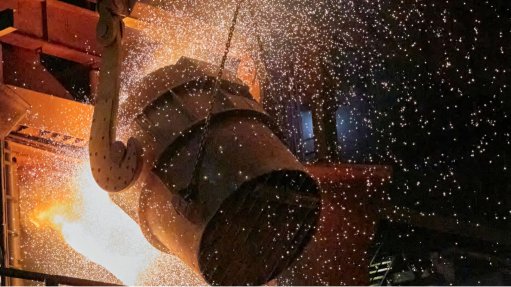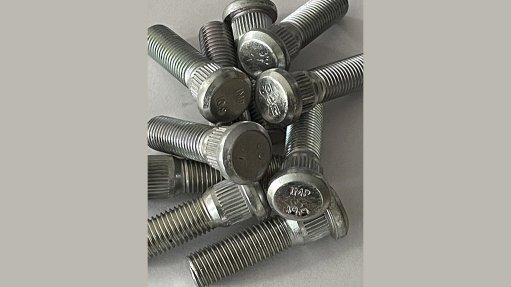Playing field not level for local valves manufacturers
Although the Department of Trade and Industry encourages investment in locally manufactured products, this has proven to be a challenge for local valves manufacturers, as companies still prefer to buy imported products, says industrial valves manufacturer and supplier Pace Valves MD Tony Haldenby.
“The scale of the market and the variation of valves being relatively smaller, compared with that of the international market, prevent the local valves industry from going into mass production to reduce manufacturing costs.”
There are also other contributing factors, such as higher minimum wages, low productivity and low product demand, which restrict local manufacturers from reducing manufacturing costs, he adds.
“Local valves are generally about three to four times more expensive than the products from China,” says Haldenby.
Foundries, which are important in the supply chain and dictated to by government legislation, are advocating that valve casting should be done locally. However, while following legislation, foundries suffer from restrictions, he adds.
Haldenby says government should have a tax incentive, where there is a tax waiver in place for local valves manufacturers, as there are companies that claim to be local manufacturers, but which use imported components to assemble the valves locally.
Further, preference for local over international valves does not apply to all projects, he adds.
Should a project consultant specify local products and the engineering company incorporate those products for a particular project, the customer is then faced with the challenge of the products taking too long to be delivered or the price of the products being too high. As a result, companies resort to buying imported products and ask for a waiver from the client.
Haldenby notes, moreover, that companies wanting to compete in the international market struggle with compliance, as there are not any local facilities available to carry out compliance tests on valves that are manufactured locally.
“These specifications are not only to guard the end-user but also to guard against competition. American specifications are designed to provide the American valves with an advantage, as are British specifications.”
He mentions that the South African Bureau of Standards (SABS) has developed local specifications, which are not international specifications, meaning local manufacturers that are part of the SABS are unable to export their products.
Factors such as fuel prices, labour, materials and overheads in terms of wages, are making it very difficult for local manufacturers to compete internationally, Haldenby explains.
There is a general lack of confidence in the local market and economy, which means that engineering companies – as well as State-owned enterprises and the government – will spend less in the market.
Consequently, local construction, mining and engineering companies are looking for work outside the country, Haldenby highlights.
International clients are using local engineering companies to do projects in Africa because of the expertise and lower rates that they charge.
“Among the members of the Valve and Actuator Manufacturers Cluster of South Africa, there is a lot of dissatisfaction because government stated that local manufacturers should have priority, yet nothing is being done to promote that,” he concludes.
Article Enquiry
Email Article
Save Article
Feedback
To advertise email advertising@creamermedia.co.za or click here
Announcements
What's On
Subscribe to improve your user experience...
Option 1 (equivalent of R125 a month):
Receive a weekly copy of Creamer Media's Engineering News & Mining Weekly magazine
(print copy for those in South Africa and e-magazine for those outside of South Africa)
Receive daily email newsletters
Access to full search results
Access archive of magazine back copies
Access to Projects in Progress
Access to ONE Research Report of your choice in PDF format
Option 2 (equivalent of R375 a month):
All benefits from Option 1
PLUS
Access to Creamer Media's Research Channel Africa for ALL Research Reports, in PDF format, on various industrial and mining sectors
including Electricity; Water; Energy Transition; Hydrogen; Roads, Rail and Ports; Coal; Gold; Platinum; Battery Metals; etc.
Already a subscriber?
Forgotten your password?
Receive weekly copy of Creamer Media's Engineering News & Mining Weekly magazine (print copy for those in South Africa and e-magazine for those outside of South Africa)
➕
Recieve daily email newsletters
➕
Access to full search results
➕
Access archive of magazine back copies
➕
Access to Projects in Progress
➕
Access to ONE Research Report of your choice in PDF format
RESEARCH CHANNEL AFRICA
R4500 (equivalent of R375 a month)
SUBSCRIBEAll benefits from Option 1
➕
Access to Creamer Media's Research Channel Africa for ALL Research Reports on various industrial and mining sectors, in PDF format, including on:
Electricity
➕
Water
➕
Energy Transition
➕
Hydrogen
➕
Roads, Rail and Ports
➕
Coal
➕
Gold
➕
Platinum
➕
Battery Metals
➕
etc.
Receive all benefits from Option 1 or Option 2 delivered to numerous people at your company
➕
Multiple User names and Passwords for simultaneous log-ins
➕
Intranet integration access to all in your organisation

















